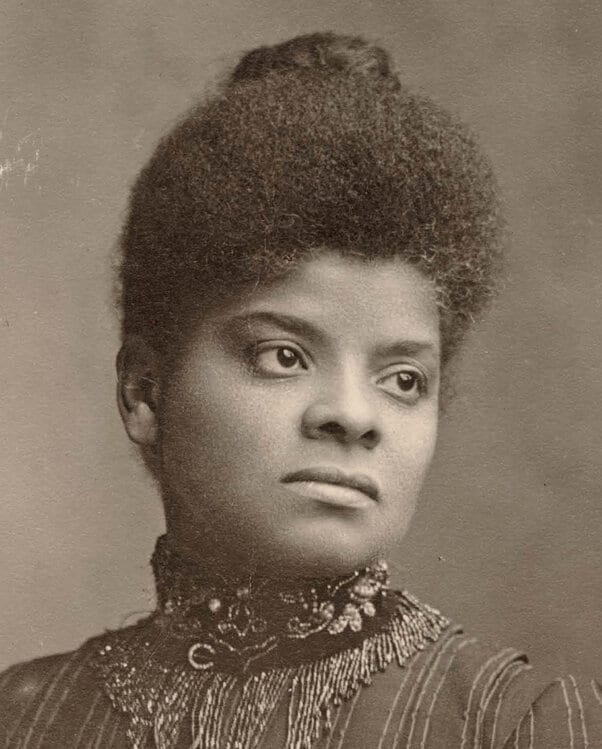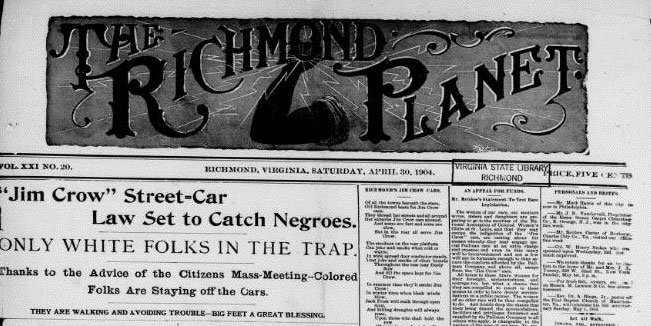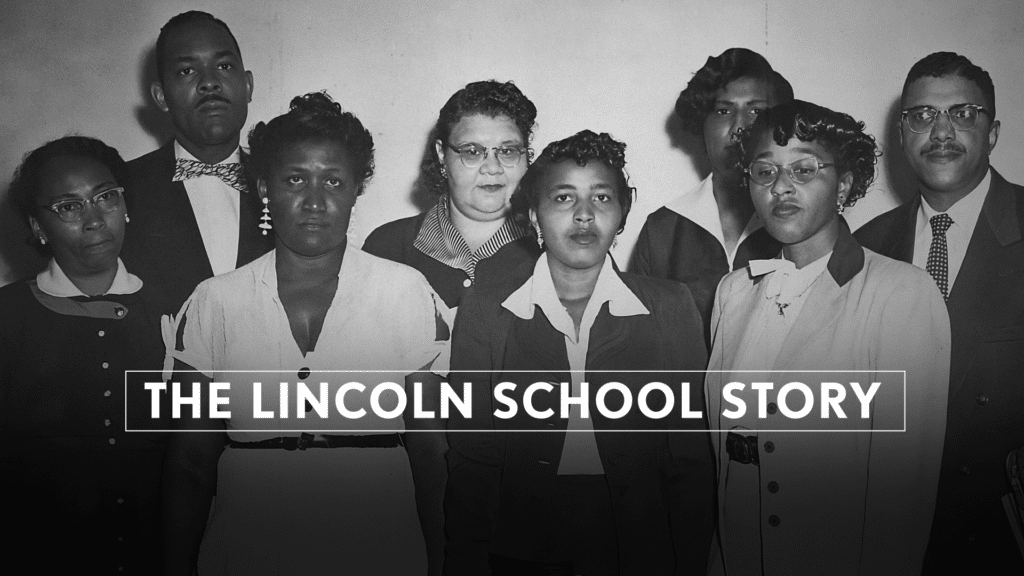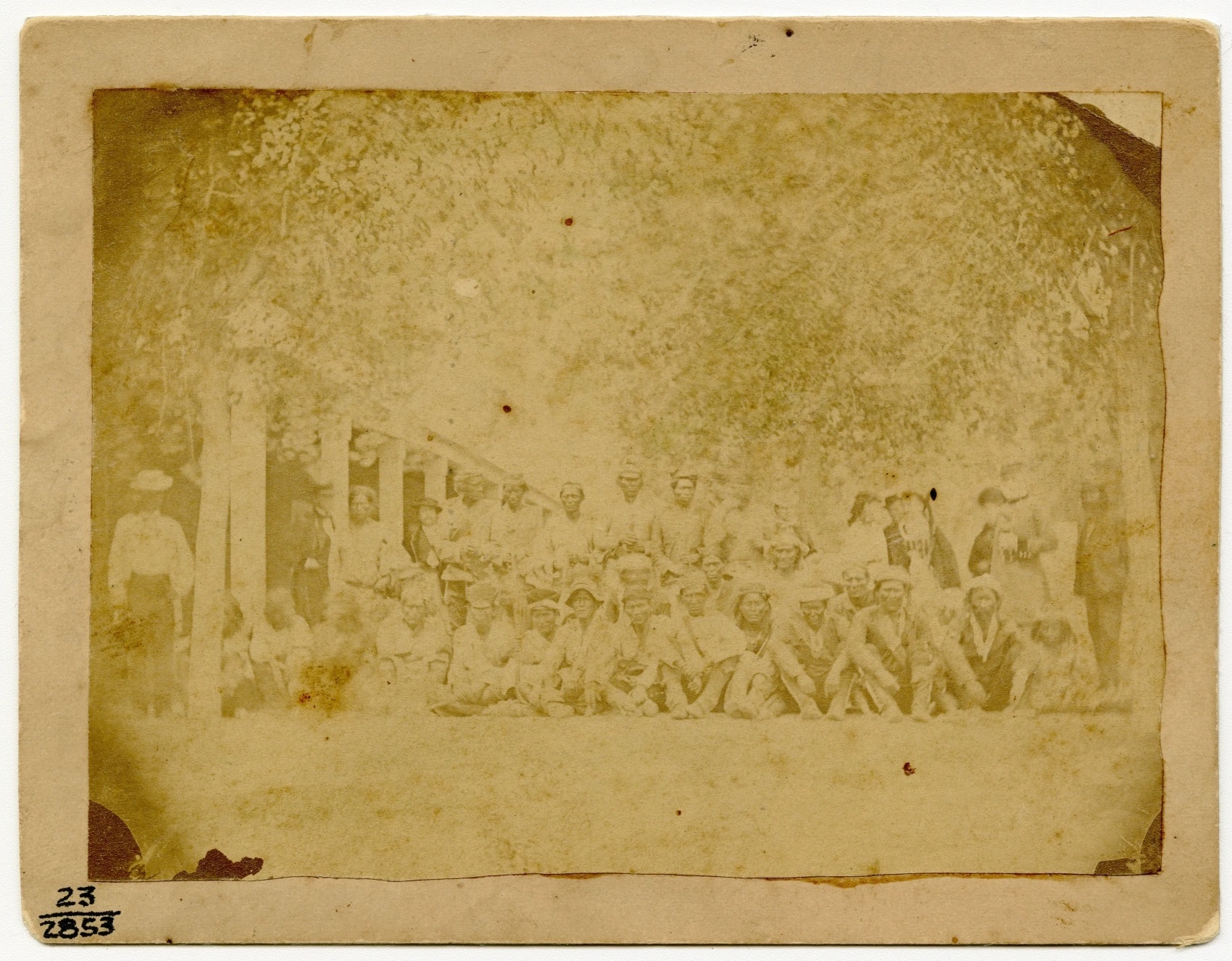Ida B. Wells stood up to injustice by refusing to change seats on a segregated Chesapeake, Ohio & Southwestern Railroad train, leading to a legal battle over racially discriminatory laws.
Continue reading
The “Marching Mothers” of Hillsboro sued the school district and began daily marches to desegregate elementary schools in this town in Ohio.
Continue reading
Bringing an end to the Navajo Wars, the Navajo Treaty of 1868 created a sovereign nation for the Navajo peoples and returned those interned at Fort Sumner following the Long Walk.
Continue reading
Book — Non-fiction. By Jesse Hagopian. 2025. 302 pages.
A call to defend honest education for our students, showing how we can reclaim suppressed history by creating beloved classroom communities and healthy social movements.
Continue reading
With the help of the NAACP, local African American parents in South Carolina fought back against school segregation in a case that eventually helped to end segregation of public facilities across the nation.
Continue reading
Following months of protests to end segregation, Black residents of Tuscaloosa, Alabama were brutally attacked by police and the Klan inside the First African Baptist Church.
Continue reading
The Reverend Fred Shuttlesworth and others were met with coordinated white supremacist violence when attempting to desegregate Birmingham city buses.
Continue reading
Book — Non-fiction. By Kellie Carter Jackson. 2024. 304 pages.
A reframing of the past and present of Black resistance — both nonviolent and violent — to white supremacy.
Continue reading
Book — Non-fiction. By Orisanmi Burton. 2023. 328 pages.
Drawing on oral history and applying Black radical theory in ways that center the intellectual and political goals of incarcerated people, this book argues that prisons are a domain of hidden warfare within U.S. borders.
Continue reading
At 15 years old, William Freeman was incarcerated in the Auburn State Prison, America’s original prison for profit. From the start, he challenged the system of convict leasing.
Continue reading
The undefeated Carlisle Indian School football team faced off against the Army football team at the West Point Academy campus in front of a crowd of 3,000 people. The Carlisle team defeated Army 27–6 in this game.
Continue reading
In one of many white supremacists attacks during the early years of the Civil Rights Movement, a Jewish Community Center was bombed in Nashville, Tennessee.
Continue reading
Book — Non-fiction. By Mary Frances Phillips. 2025. 320 pages.
The first biography of Ericka Huggins, a queer Black woman who brought spiritual self-care practices to the Black Panther Party.
Continue reading
Picture book. By Shana Keller and illustrated by Laura Freeman. 2024. 40 pages.
Helps introduce young readers to the history of African American family members desperately trying to find their children, spouses, siblings, parents, and other loved ones during Reconstruction.
Continue reading
Book — Non-fiction. By Robert Shetterly. 2024. 128 pages.
Loving, colorful portraits and short biographies of 50 peace activists.
Continue reading
In Norfolk, where schools had been closed for months rather than desegregate, 17 African American students began attending six previously all-white middle and high schools on February 2, 1959.
Continue reading
Twenty-one teachers at the Elloree Training School were fired when they refused to sign an oath denying membership in the NAACP.
Continue reading
The Florida Constitution of 1885 mandated separate and unequal educational systems for Black and white students, reinforcing racial segregation.
Continue reading
Passed in response to the Stono Rebellion, this law made it illegal to teach enslaved people to read or write, aiming to prevent further insurrections.
Continue reading
Enacted in response to David Walker’s Appeal, this law criminalized the distribution of materials that could incite rebellion to slavery, reflecting fears of literacy empowering resistance.
Continue reading
Enacted following Nat Turner’s Rebellion, this Virginia law prohibited the education of enslaved and free Black people, seeking to suppress potential uprisings. Several other states enacted similar bans at this time as well.
Continue reading
One of many anti-literacy laws at the time, this law prohibited the establishment of schools for Black students who were not residents of Connecticut.
Continue reading
Not wanting Black coworkers to be given the same positions and pay, a contingent of Philadelphia Transit Company (PTC) workers staged a wildcat strike and withheld their labor.
Continue reading
The Columbia Avenue Riot began in the predominantly African American neighborhoods of North Philadelphia after an altercation with the police and continued for three days.
Continue reading

























